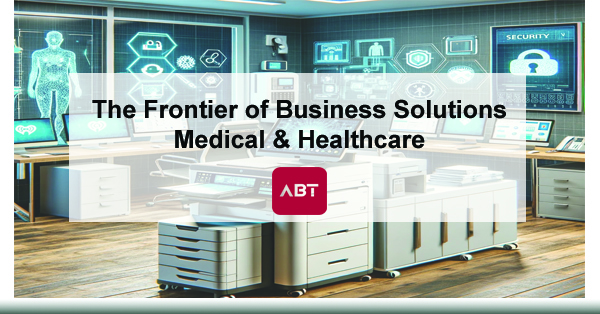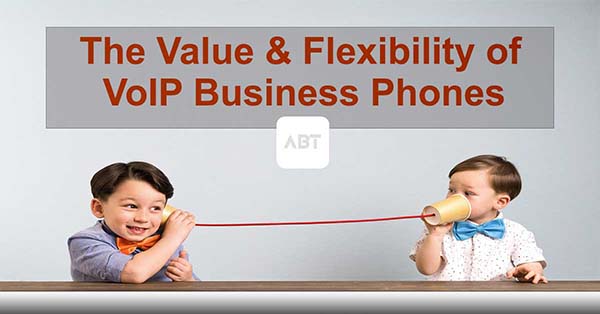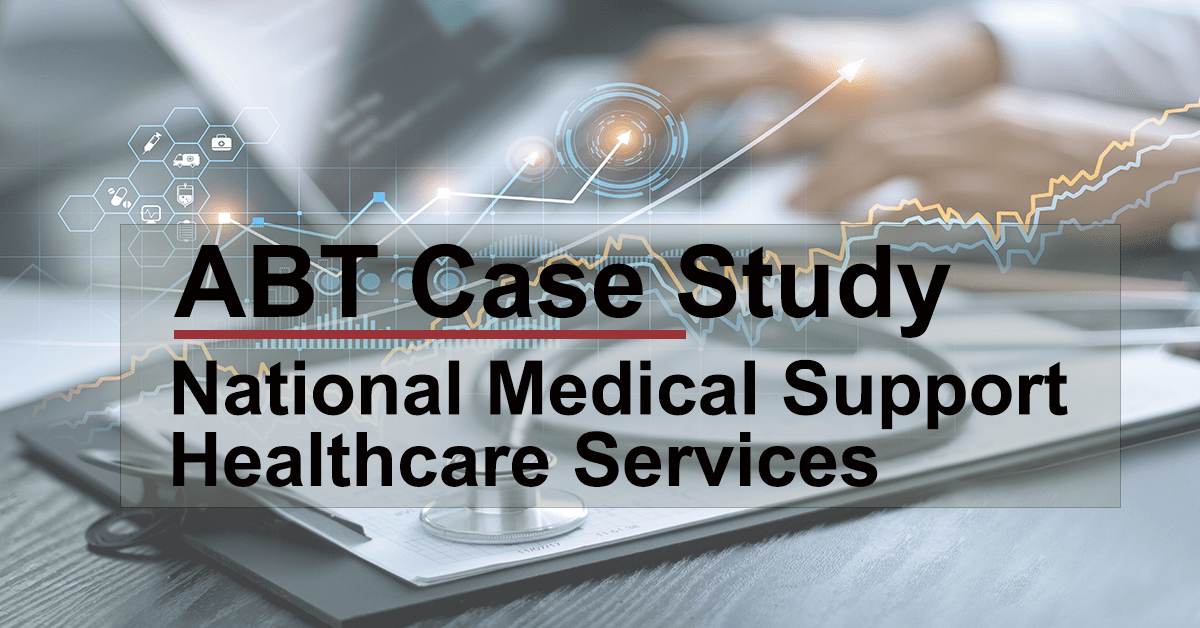
The Frontier of Business Solutions | Medical & Healthcare
In the rapidly evolving landscape of healthcare, the integration of advanced technology in medical business offices is not just an option—it’s a necessity. As medical facilities strive to meet the stringent requirements of HIPAA compliance, enhance security measures, and streamline operations, the deployment of multifunction printers (MFPs), VoIP phone systems, cloud communications, and integrated access control solutions becomes increasingly crucial.
Partnering with a Managed IT Provider (MIP) can further augment these benefits, ensuring data security and optimizing healthcare workflows. Here’s a comprehensive look at these transformative technologies and the value they offer to healthcare providers.
Advanced Multifunction Printers | Enhancing HIPAA Compliance and Security
In the context of medical business offices, MFPs have transcended their traditional roles. Today’s MFPs are designed with cutting-edge features that ensure HIPAA compliance through enhanced data security measures. Modern MFPs are equipped with encryption and user authentication features, ensuring that sensitive patient information is safeguarded against unauthorized access.
These devices also include secure print release functions, which require user authentication before any document is printed, thus preventing sensitive information from being left unattended.
Additionally, the latest MFPs come with audit trail capabilities, allowing healthcare organizations to track who accessed what information and when. This not only helps in maintaining compliance with HIPAA regulations but also provides a layer of security that is critical in the event of a data breach.
Kyocera and HP Devices: Tailored Solutions for Medical Offices
When selecting the right technology for medical offices, Kyocera and HP stand out as leading choices due to their advanced specifications and robust security measures, each tailored to meet the unique demands of healthcare environments.
Kyocera devices are renowned for their durability and cost-efficiency, making them a practical choice for high-volume medical offices. These MFPs feature advanced security options such as data encryption and user authentication systems, which are crucial for protecting patient information.
Additionally, Kyocera’s HyPAS Technology allows for software applications to be integrated directly into the MFPs, providing customized solutions to improve efficiency and compliance. For example, Kyocera’s devices can be equipped with applications that directly interface with Electronic Health Records (EHRs), ensuring seamless data processing and enhanced confidentiality.
On the other hand, HP offers MFPs that emphasize high-performance and state-of-the-art security features, making them ideal for healthcare settings where protection and reliability are paramount. HP’s Sure Start technology ensures that each device regularly checks its operating code and repairs itself from attempted hacks. Furthermore, HP devices come with built-in malware protection and sophisticated encryption capabilities to safeguard sensitive data. HP also offers a broader range of cloud-enabled devices, which allow for better integration with cloud-based healthcare applications, facilitating remote access and management of patient data.
Both Kyocera and HP provide robust solutions that ensure the safety and privacy of patient information, conforming to HIPAA regulations. However, the choice between them may depend on specific business needs such as print volume, the extent of required cloud integration, and budget constraints. For medical offices looking to invest in new technology, comparing these aspects will help determine which manufacturer offers the best solution for their operational requirements.

VoIP Phones and Cloud Communications | Streamlining Communication in Healthcare
Voice over Internet Protocol (VoIP) phones and cloud communications are pivotal in transforming how healthcare facilities communicate. These technologies enable seamless, efficient, and cost-effective communication systems that are essential for modern healthcare environments. VoIP technology offers considerable advantages over traditional telephony by facilitating integrated communications across various channels—voice, video, and text—through a single platform.
Cloud communications enhance this integration by allowing healthcare professionals to access and share information effortlessly and securely across multiple locations. This capability is particularly valuable in telehealth, where real-time communication and data exchange are crucial. Moreover, cloud-based solutions are scalable, meaning they can grow with the healthcare provider’s needs without significant upfront investments.

Integrated Access Control Solutions | Securing Healthcare Facilities
Access control systems in healthcare facilities serve a dual purpose: safeguarding sensitive areas and ensuring that only authorized personnel can access certain data or locations. Integrated access control solutions provide a robust framework to manage entry points across multiple facilities centrally. These systems can be integrated with other security measures such as surveillance cameras and alarm systems, offering a comprehensive security solution that monitors and controls access in real-time.
Furthermore, these integrated systems can help healthcare facilities enforce policies around access, ensuring compliance with both internal standards and external regulations. They also reduce the risk of internal and external breaches, a critical consideration for facilities that handle sensitive patient data.
The Value of a Managed IT Provider | Ensuring Data Security and Streamlining Workflows
Partnering with a Managed IT Provider offers numerous benefits for healthcare providers. Firstly, MIPs bring expertise in managing and securing IT infrastructures, which is crucial for maintaining HIPAA compliance. They implement robust cybersecurity measures, conduct regular audits, and ensure that the healthcare provider’s technology infrastructure adheres to the latest security standards.
Additionally, MIPs can optimize healthcare workflows through the integration of advanced technologies. By automating routine tasks, ensuring that systems are interoperable, and minimizing downtime, MIPs enable healthcare providers to focus more on patient care and less on administrative burdens. This partnership not only enhances operational efficiencies but also improves patient satisfaction by reducing wait times and streamlining care delivery.
Concluding Thoughts
As the digital landscape continues to reshape healthcare, the importance of staying ahead in technology adoption cannot be overstated. Investing in advanced MFPs, VoIP systems, cloud communications, and integrated access control solutions is essential for enhancing HIPAA compliance, securing patient data, and optimizing operational efficiencies.
Healthcare providers should consider the significant benefits of partnering with a Managed IT Provider. A competent MIP can ensure that technological implementations are not only compliant with current regulations but are also scalable and capable of meeting the demands of future growth.
If you’re looking to upgrade your medical business office technology and secure your data while streamlining workflows, now is the time to act. Explore the possibilities that these technologies can offer and consider a partnership with a trusted Managed IT Provider. Embrace the change, secure your operations, and set your healthcare facility on the path to technological excellence and improved patient care.
